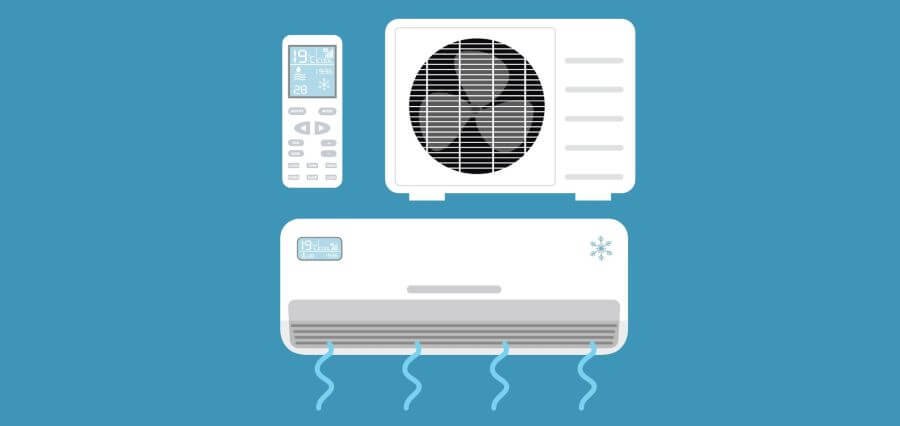When your air conditioner begins to malfunction, you may wonder whether to repair it or invest in a new one. This decision can impact your comfort, energy bills, and long-term financial investment. In this guest post, we’ll explore the key factors to consider when deciding between repair and replacement of your AC unit, ensuring that you make the best choice for your home and family.
- How Old Is Your AC Unit?
One of the most important factors in determining whether to repair or replace your air conditioning system is its age. Most AC units have a lifespan of 10 to 15 years. If your unit is approaching or has exceeded this age, it’s probably time for a replacement. While repairing an older unit may seem cheaper initially, it can become costlier over time as wear and tear increases the need for frequent repairs.
Replacing an older unit with a new, energy-efficient model can save you on repair costs and energy bills. Upgrading also means you benefit from advancements in technology, such as improved SEER (Seasonal Energy Efficiency Ratio) ratings, which provide better cooling performance and efficiency.
- Are Frequent Repairs Draining Your Budget?
If you’ve been repeatedly calling your HVAC technician to fix various issues, you may be better off investing in a new system. A good rule of thumb is the “50% rule”—if the cost of repairs exceeds 50% of the price of a new unit, it’s time to replace it.
Frequent repairs can not only be financially draining but also signal that the unit’s performance is steadily declining. Rather than spending money on temporary fixes, a new system could provide more consistent comfort, peace of mind, and long-term savings.
- Is Your Energy Bill Skyrocketing?
Older AC systems are far less efficient than modern models. If you’ve witnessed an increase in your energy bills, particularly during the summer months, it might be time to assess your unit’s efficiency. Older units require more energy to keep your home cool, which means higher utility costs.
Newer air conditioning units have better SEER ratings, making them much more energy-efficient. Upgrading to a high-efficiency system can significantly lower monthly energy costs, providing financial benefits in the long term.
- Are You Experiencing Inconsistent Cooling?
A well-functioning AC unit should cool your home evenly and maintain a consistent temperature. If certain rooms in your house are cooler than others, or if your AC cycles on and off frequently, it could indicate a serious issue. Common causes include refrigerant leaks, compressor malfunctions, or faulty thermostats.
While these problems can sometimes be repaired, persistent performance issues may be a sign that it’s time to replace the unit. Upgrading to a new system ensures more reliable performance and improved comfort throughout your home.
- What About the Environmental Impact?
If your air conditioner uses an outdated refrigerant such as R-22, which is harmful to the environment, it’s a good idea to consider replacement. R-22 has been phased out due to its ozone-depleting properties, making it more difficult and expensive to service older units that still rely on it.
Newer AC models use eco-friendly refrigerants and are designed to be more energy-efficient. By replacing your old system with an environmentally conscious option, you’ll not only reduce your carbon footprint but also contribute to a healthier planet.
- Do Newer Features and Technologies Matter to You?
Advances in HVAC technology have led to features that enhance comfort and convenience, such as smart thermostats, variable-speed compressors, and better humidity control. If your current system lacks these modern capabilities, upgrading could improve your overall comfort and provide greater control over your home’s climate.
These features can also increase the efficiency of your HVAC system, reducing energy consumption and enhancing performance. Consider whether these technological upgrades are worth the investment for your lifestyle and comfort preferences.
- What’s Your Budget?
Finally, your budget plays a critical role in deciding between AC repair Plano, TX and replacement. While repairs may be more affordable in the short term, repeated service calls can quickly add up. On the other hand, a new AC system requires a larger upfront cost but offers long-term savings through improved efficiency, fewer repair needs, and potential rebates or tax incentives.
Many HVAC companies offer financing options, making it easier to afford a new unit without straining your budget. Weigh your current and future costs to determine which option is financially viable for your situation.
Deciding between the right commercial AC services involves balancing multiple factors, from the age and efficiency of your current unit to your long-term comfort and environmental impact. By considering the unit’s performance, repair frequency, energy usage, and available budget, you can make a well-informed decision that enhances your home’s cooling and keeps your finances in check.
If you’re unsure whether to repair or replace your air conditioning system, Classic Heating & Air can help. The team of experienced HVAC technicians will assess your unit and guide you through the best options for your home. Don’t wait until your comfort is compromised—contact them to schedule an evaluation and ensure your home stays cool all year long.
FAQs
Q1: How can I know if my AC unit is beyond repair?
If your AC is over ten years old, needs frequent repairs, and your energy bills are climbing, it’s likely time for a replacement. Additionally, if the cost of a major repair is over 50% of a new unit’s price, replacing it is a smarter long-term decision.
Q2: How long does a new AC unit typically last?
With proper maintenance, most new AC units can last 15 to 20 years. Regular maintenance, including annual inspections and timely repairs, can extend the lifespan of your system and ensure optimal performance.














